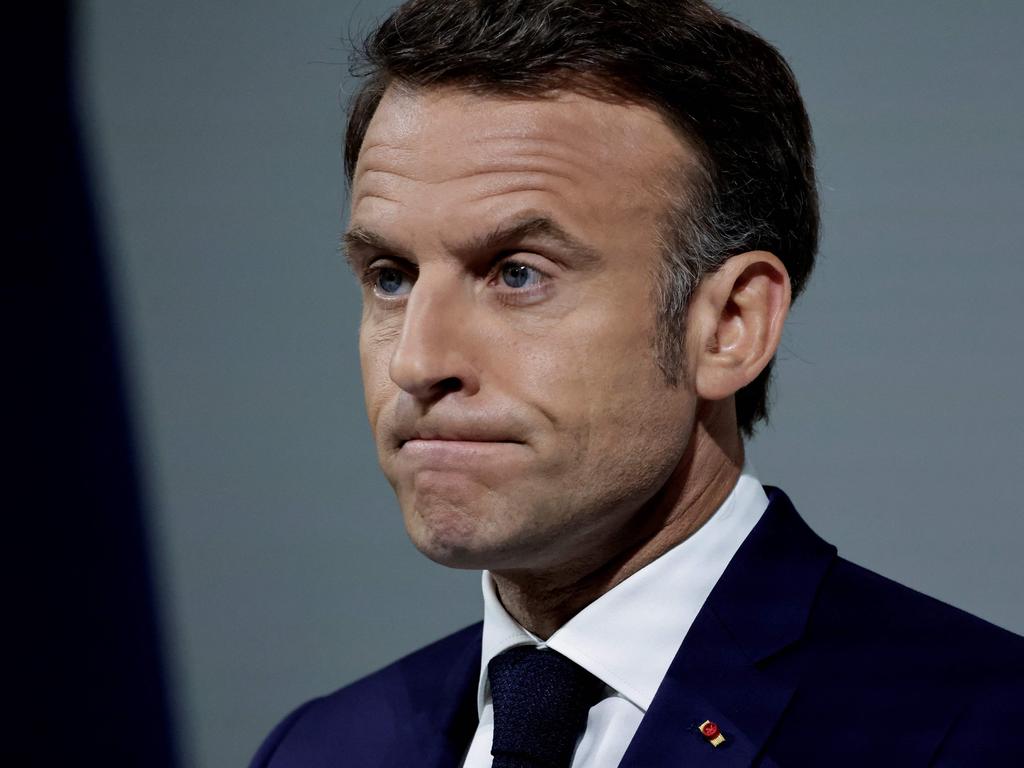France’s Jews consider the unthinkable: voting for a party with an anti-Semitic past
The National Rally has long been radioactive to Jewish voters and much of the French electorate. But outreach by Marine Le Pen and anger with left-wing parties over Israel has created a dilemma.
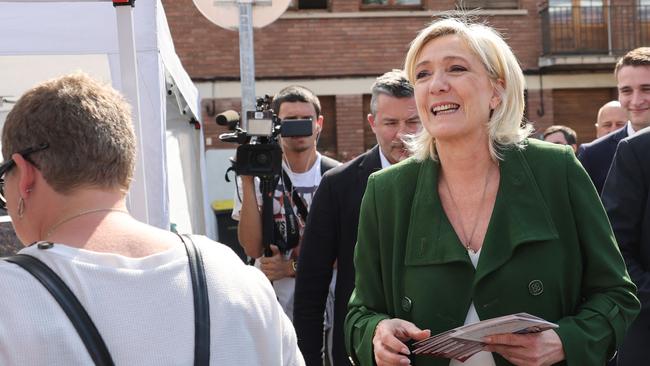
Serge Klarsfeld is a world-renowned Nazi hunter, a historian of the Holocaust and a moral authority in France who has pushed the country to reckon with its dark history of anti-Semitism.
That is why many in France were shocked this week when Klarsfeld defended the far-right party of Marine Le Pen, which counts among its founders a former Nazi paramilitary soldier. Klarsfeld, an 88-year-old Holocaust survivor, said the main threat to France’s Jews now comes from the far left and that he wouldn’t hesitate to vote for Le Pen’s party, the National Rally, in the coming parliamentary elections if the alternative were a coalition of leftist parties, the New Popular Front.
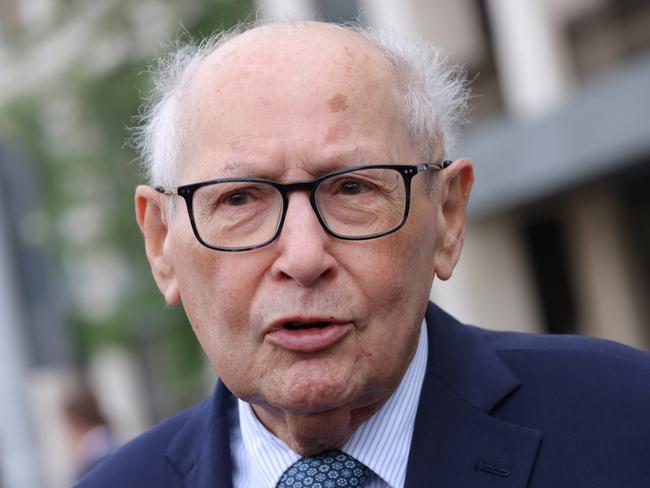
“The National Rally supports Jews, supports the state of Israel,” Klarsfeld said on national television. “When there is an anti-Jewish party and a pro-Jewish party, I will vote for the pro-Jewish party.” Klarsfeld’s comments are the fruit of a rapprochement between French Jews and the far right that is reordering French politics and helping push the National Rally to the doorstep of power. The National Rally’s anti-Semitic past long made it radioactive to Jewish voters and much of the French electorate; the party’s founder, Le Pen’s father, Jean-Marie, was convicted of anti-Semitism several times for calling the Nazi gas chambers a “detail” of World War II history.
Now the taboo is fading. The National Rally’s outreach to French Jews, particularly in the aftermath of the October 7 attack in Israel, has solidified the party’s place in the mainstream of French politics, helping put it on track to win the most seats in the parliamentary elections, which conclude next month. French President Emmanuel Macron called for snap parliamentary elections after the National Rally trounced his centrist party in European elections this month. Polls show the National Rally leading in the first round of the French elections set for June 30, followed by the New Popular Front.
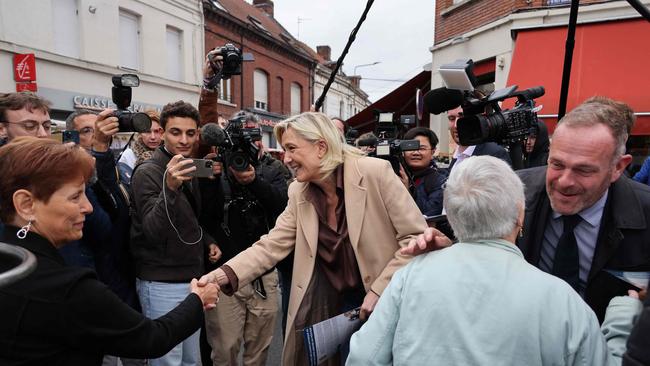
It is unclear whether the candidates of the National Rally will have enough support to win an outright majority in the National Assembly after the second round of the elections on July 7.
The Oct. 7 attacks by Hamas and the ensuing Israeli offensive in Gaza have had a profound impact in France, deepening political divisions in the home to Europe’s largest Jewish community and one of its largest Muslim communities. Leaders of the far-left party France Unbowed didn’t immediately condemn the attack and then stridently criticised Israel. Jewish groups and Macron’s government say the party’s rhetoric has fuelled a surge in antisemitism in France since Oct. 7.
Those fears were amplified by the alleged assault and rape of a 12-year-old Jewish girl last weekend in Courbevoie, a suburb of Paris. French authorities brought preliminary charges against three adolescents for the crime.
The National Rally has seized the moment to attack the far left and make the case to the public that it has renounced antisemitism. Jordan Bardella, the party’s president, participated in a march against anti-Semitism after the attack and has strongly defended Israel.
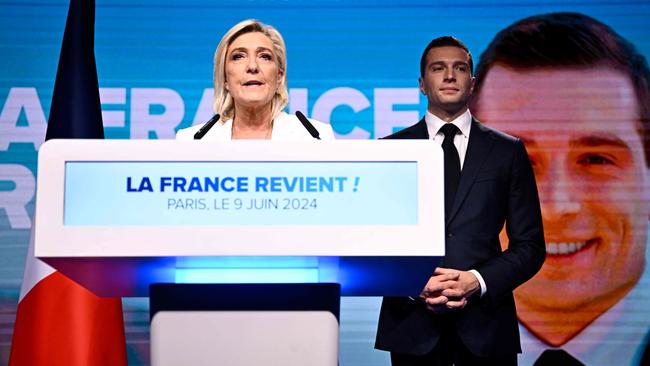
“It provided a chance for the National Rally to redeem itself,” said Olivier Costa, a research professor at Paris-based Sciences Po university and France’s National Center for Scientific Research. The National Rally’s anti-Muslim rhetoric also resonates with part of the conservative Jewish electorate, he added.
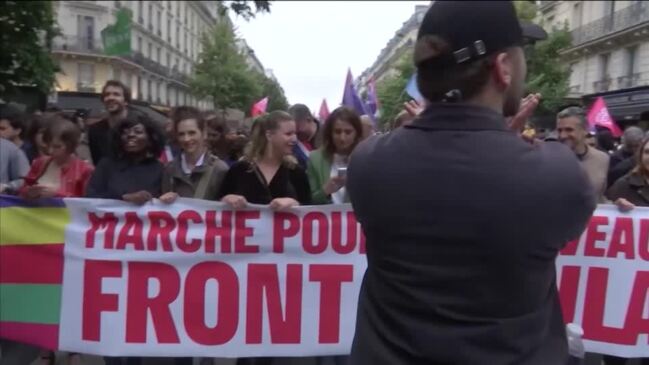
Then France’s Socialist and Green parties decided to form an alliance with France Unbowed ahead of the snap elections. The alliance’s platform condemns the Hamas attack, and one of its leaders is a Socialist member of the European parliament, Raphaël Glucksmann, who is of Jewish descent. But most French Jews say they can’t vote for the alliance because of the presence of France Unbowed.
“We have no trust in France Unbowed,” said Yonathan Arfi, president of the Representative Council of French Jewish Institutions, or CRIF, an umbrella group of Jewish associations. “It’s a real turn in our relationship with parts of the left.” Many French Jews, however, are wary of the National Rally. Despite the pro-Jewish and pro-Israel rhetoric of the party’s leaders, Jews fear that antisemitic sentiment is still strong among the party’s rank-and-file. There is also concern that the National Rally’s policies would damage the French economy.
“It’s not good. It’s just less worse,” said Jonathan Behar, a 42-year-old entrepreneur.
The National Rally plans to restrict the rights of foreign residents living legally in France, and tighten access to citizenship, welfare and housing. Le Pen also wants to increase minimum sentences and establish a presumption of legitimate defence for security forces. She sought to build a coalition with Les Républicains, France’s conservative party, ahead of the elections. But most Les Républicains politicians refused, saying they would never build alliances with the far right.
Le Pen has spent years attempting to distance her party from its controversial founders, including her father and Pierre Bousquet, who was a member of the French division of the Waffen-SS during World War II. Then called the National Front, the party was ostracised by mainstream French politics as the country grappled with its role in deporting tens of thousands of French Jews to Nazi death camps during World War II.
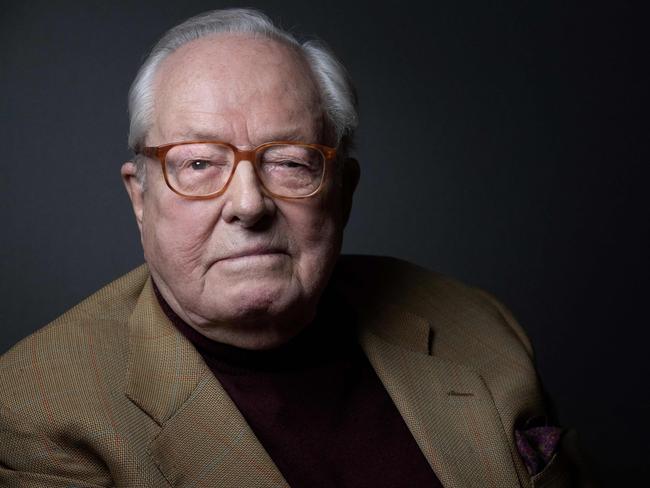
Le Pen changed the party’s name to the National Rally in 2018. She also changed some of her positions – such as a plan to pull France out of the euro – that were particularly unpopular with the French public. Those moves helped her win more than 40% of the vote in the 2022 presidential runoff against Macron, the best showing of the far right in the history of modern France.
After the Oct. 7 attack, Le Pen met several times with Klarsfeld, most recently in February at his apartment in the 8th arrondissement of Paris.
“The National Rally has matured,” Klarsfeld said in the interview this week. Le Pen rejoiced after Klarsfeld’s comments were broadcast, calling him “a great conscience and guardian of the memory of the Shoah.” But the party hasn’t completely disavowed the figures of its controversial past. After the Oct. 7 attack, a television interviewer asked Bardella, who is 28, whether Jean-Marie Le Pen was an anti-Semite.
“I was born in 1995. You’re talking to me about an era I didn’t experience,” Bardella said, before adding: “I don’t believe Jean-Marie Le Pen is an antisemite. Now, I obviously wouldn’t make the comments he made about the ‘detail’ because, for me, the horrors of the Holocaust aren’t a detail of history.” All of which has left France’s Jews contemplating the dilemma of voting for a party that was once almost a metonym for French antisemitism.
“I never would have imagined voting in favour of the National Rally to blockade against antisemitism,” the writer Alain Finkielkraut told French magazine Le Point this month. “The current situation is heartbreaking for the Jews of France.”
The Wall Street Journal


